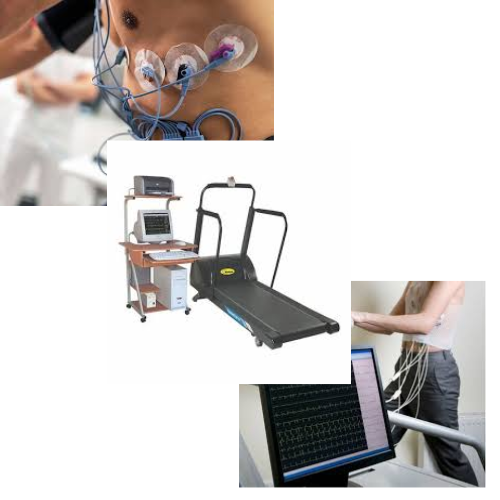STRESS TEST
A non-invasive test that measures how your heart responds under physical stress. It helps diagnose heart conditions, assesses exercise tolerance, and guides your treatment plan for better heart health.
Purpose:
- To evaluate how well the heart functions during physical exertion.
- To diagnose coronary artery disease or irregular heart rhythms.
- To assess the effectiveness of cardiac treatment plans.
Procedure:
- The patient walks on a treadmill or pedals a stationary bike while heart activity is monitored.
- The speed and incline increase gradually to intensify exertion.
- Heart rate, blood pressure, and ECG are recorded to analyse heart performance under stress.
How a Stress Test Works:
- Preparation: Electrodes are placed on the chest to monitor heart activity via ECG, and baseline vitals are taken.
- Exercise Phase: The patient begins walking on a treadmill or cycling on a stationary bike, with intensity increasing gradually.
- Monitoring: Heart rate, blood pressure, and ECG readings are tracked to observe heart response to stress.
- Post-Test Analysis: Results are analysed to determine if there are signs of heart disease, abnormal rhythms, or reduced blood flow.


